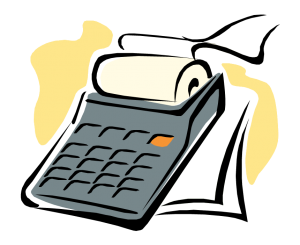Mortgage Payment Calculator
What ideas have you been having regarding your dream home? Have you been considering getting a mortgage for your first home? Or are you already a homeowner looking for a refinance to help you secure lower interests, a reduction in payments, and maybe some cash for home refurbishing or renovations? These are great thoughts that can make your dreams a reality without a lot of hassles. Regardless of the idea you take up, use our home loan affordability calculator to find out how much you can qualify for then use our mortgage calculator to estimate your monthly payment obligation.
Mortgage calculator
Using our online mortgage calculator, you will be able to estimate your monthly mortgage payment by keying in a few details. The calculator helps you determine the total amount of interest you will be required to pay for your home loan.

Understanding Your Mortgage Payment
A monthly mortgage payment constitutes various costs such as principal loan amount & interest, homeowners insurance premiums, private mortgage insurance, homeowner’s association fees, and property taxes.
-
Home price
This is the cost charged by a seller for the property you are buying. The prices keep changing with changes in the real estate market; therefore, always find out how much house you can afford before you start looking for a home to buy.
-
Down payment
This is the initial cash payments a buyer makes for a home, which is expressed as a percentage of the total home price. The more the down payment, the lesser the interest charged on your mortgage.
-
Interest rate
This is a running cost expressed as a percentage of your outstanding mortgage. For some loans, the interest rate remains fixed throughout the life of your loan while others the proportion changes with time.
-
Private Mortgage Insurance (PMI)
This is an annual percentage of your principal loan amount set based on your credit profile, and the amount of down payment you make. The PMI does not contribute to your mortgage payoff, but it secures the lender in case you default your mortgage.
-
Homeowners insurance
This is a general requirement for home loans. The amount charged depends on the state and value of the home, and the premium is paid together with the monthly mortgage payment. The insurance covers all the costs of repairs and damages caused by natural occurrences. It also takes care of your possessions inside the house.
-
Homeowner’s association (HOA) fees
This is the fees paid for membership in the homeowner’s association, which is a community set up to maintain and reinforce guidelines for the properties under its authority. When you acquire property in a community like that, it means you subscribe and agree to the rules and fees charged by the HOA.
-
Property taxes
This is the amount the government charges on your property. It is a part of the monthly obligation. It is also determined using your home price and the location of your home.
-
Monthly payment
This is a total of your obligation towards your property taxes, home loan, homeowners insurance, and association fees. The total amount should not exceed 25% of your net take home.
How To Calculate Your Mortgage Payment
To get your mortgage payment for a fixed-rate loan monthly obligations the mortgage payment equation is:
M = P [ i(1 i)^n ] / [ (1 i)^n – 1]
Where:
- M = monthly mortgage payment
- P = the principal amount or the initial amount you borrowed.
- i = your monthly interest rate. Your lender may give the interest rate using the annual figure, therefore divide by 12, to get for each month of the year. For instance, if your annual rate is 5%, then the rate per month will be 0.05/12 = 0.004167.
- n = the number of payments expected to be made over the life of the loan. If you take out a 30-year fixed-rate mortgage, it means that; n = 30 years x 12 months per year, which is equivalent to 360 payments.

Importance Of A Mortgage Calculator
The process of buying a home involves huge financial transactions that do not require rush decision making. It is crucial to make a budget before you check out homes and end up falling for a home you cannot afford. The per month mortgage payment is composed of the principal amount, taxes, insurance premiums and interest charges. There are other hidden homeownership costs such as association fees that home buyers may not be aware of or prepared for.
Smart Mortgage Center’s adjustable rate mortgage calculator will help to include all the expenses making up the payment amount. The calculator allows you to adjust different variables such as the down payment, loan term, and interest rate to see how the payments can change with changes in each of the variables. The interest rate is usually determined using your credit score and debt to income ratio.
What Is A Debt To Income (DTI) Ratio?
This is the sum of all your existing debts monthly payments divided by your gross monthly income. Your DTI helps a lender to evaluate the amount of a monthly payment you can comfortably manage without straining your sources of finance. The higher the ratio, riskier a borrower is said to be. This shows that the more risks a lender will assume by giving to such a borrower. If you take higher loans with a high DTI, the more you risk getting into loan default or penalties.
A DTI can be calculated as a front end ratio or a back end ratio. A front end DTI evaluates the amount of your gross monthly income that will be taken by your home loan. This is calculated by dividing your monthly mortgage payment by your gross earnings. A back end DTI ratio calculates the amount of your income that goes to all your loan obligations. The ratio includes all the long term loans that will take more than ten months to repay.
Comparing various loan types
To make the right mortgage decision take into account factors such as:
- The length of time you plan to stay in the home you want to buy.
- The amount of financing you are willing and capable of taking.
- The amount of money you need for your dream home.
Our mortgage payment calculator enables you to compare various loan options to find out how each one of them impacts your monthly obligation. A 15 or 30 years fixed-rate loan is the best option if you do not have the intentions of leaving your home any time soon. At least not until you have paid off your mortgage. The rates do not change over the time of the loan.
A 30 year fixed loan term has the lowest monthly payment but the highest rate. With a 15-year fixed loan, it will have a higher monthly payment with less interest charge and equity, and it is faster to pay off the loan.

Can I Reduce My Monthly Payment?
Yes, you can. There are various ways in which you can lower your monthly payment requirement:
- Increase your loan term. The more time you take to repay your loan, the lesser the amount you will be required to remit per month. However, you will end up paying more in the long run.
Reduce the amount of loan to take. The lower your credit amount is, the lesser you will be required to pay per month.
